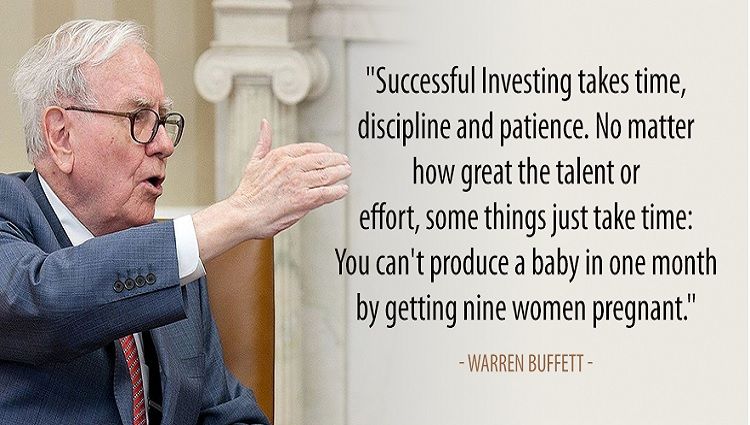I hope all you stock market lovers have read one of my article Indian Stock Market Journey. If you have gone through the article thoroughly, you have come across some numericals showing SENSEX journey from 100 points (1979) to 40000 points (2019). In these 40 years, SENSEX has given multifold returns; much bigger than any other asset class.
You may get lured by such returns and hoping to get the same. But, multifold returns are achievable only through high-risk asset class investing (like the stock market). In regards to this, I would like to share ten such tips that help you investing successfully.
1) Start Early for Successful Equity Investing
The early you start investing the more time your money will have to grow. Let’s see this example.
You started investing INR 5,000 per month at the age of 40. In the next 20 years your investing amount comes to 12 lakhs (INR 5,000 x 240 months). Considering an average 7 percent return per year, your investing amount would worth 25.5 lakhs when you reach 60.
Now, if you started investing 10 years earlier, your INR 5,000 would add 18 lakhs (INR 5,000 x 360 months) over next 30 years. Assuming same 7 percent return your amount would grow to 58.8 lakhs when you reach 60 (more than double return)
The bottom line is – if you delay, you will have to invest more to achieve similar returns.
You may like this: Early Retirement Planning: Why It Is So Important
2) Keep Some Cash Aside
It is always a good idea to put some money aside in the case of emergencies.
As a thumb rule, one should save enough to cover at least 3 months’ living expenses. Always make sure you can withdraw this saving whenever you need it and that too without any penalties.

3) How Much Risk You Can Take
In many ways, the key organ for investing is the stomach and not the brain.
If you are going to lose your sleep every time your share prices go through bad phases – it is better to stay away. It is vital that one should know his/her risk-taking capabilities and then act accordingly.
Must Read: 9 Key Financial Ratios to Find Winning Stocks
4) Keep Inflation in Mind
Inflation is known as a ticking time bomb. Don’t believe – let’s see.
If you have INR 10,000 in a savings account earning 4 percent interest each year. In 20 years time period, your savings would be worth INR 22,911. That’s almost double return (129 %). However, if the inflation rate is about 7 percent, your INR 22,911 would only be worth INR 5,920 in today’s term!
The bottom line is – In order to achieve significant long-term return; you need to make your money work harder.
5) How Long You Can Invest
If you’re going to need your money in the near future to fulfill necessities like a down payment on a house or other than the stock market is not the place to be.
Look at the stock market only if you are prepared to invest your money for 5 to 10 years or even longer. Because when you invest for a longer term then time will be on your side – but you must stick to it.
Must Read: 5 Lessons to Learn From Long Term Investors
6) Spread Your Investment
It is rarely a good idea to invest all your money in one single basket.
Depending on your goals and risk taking capabilities, you will need to spread your investment across different sectors and categories (like Bonds, Cash, and Equities). But do not over diversified.
7) Invest Regularly for Successful Equity Investing
Investing regularly is a great way to create a significant lump sum amount. By doing this you will get the benefit of something fabulous known as rupee cost of averaging. This means that if you invest regularly, over the years, irrespective of stock market goes up or down, you will pay the average price.
Also Read: Systematic Investment Plan: How Advantageous
8) Choose Your Investment Option Carefully
One should select investment option (equity, mutual funds or bonds) based on personal circumstances and goals.
The fundamental goal of investing is not to simply invest your money just for the sake of investing. It is to invest based on your requirements.
9) Do Not Time The Market
When planning an investment, it can be tempting to wait for the market to fall. Because research suggests that even market expert cannot time the market consistently well. It is wise to choose and investment option you’re confident about and stick to it with longer term view.
10) Review Your Investment
Your investment strategy needs changes whenever circumstances permit it.
Your investment must be reviewed on an occasion such as getting married, having a child or starting a new business. It is also a good idea to check your basket of investment just to confirm that each of them is performing up to your expectation.
Also Read
Value Pick Stock of the Month – Apex Frozen Foods Limited
Disclaimer: The contents and data presented here are just for your information & personal use only. While much effort is made to provide the information, I ( Vishal Dalwadi ) or “FinBlab” do not guarantee the accuracy, correctness, completeness or reliability of any information or data displayed herein and shall not be held responsible.